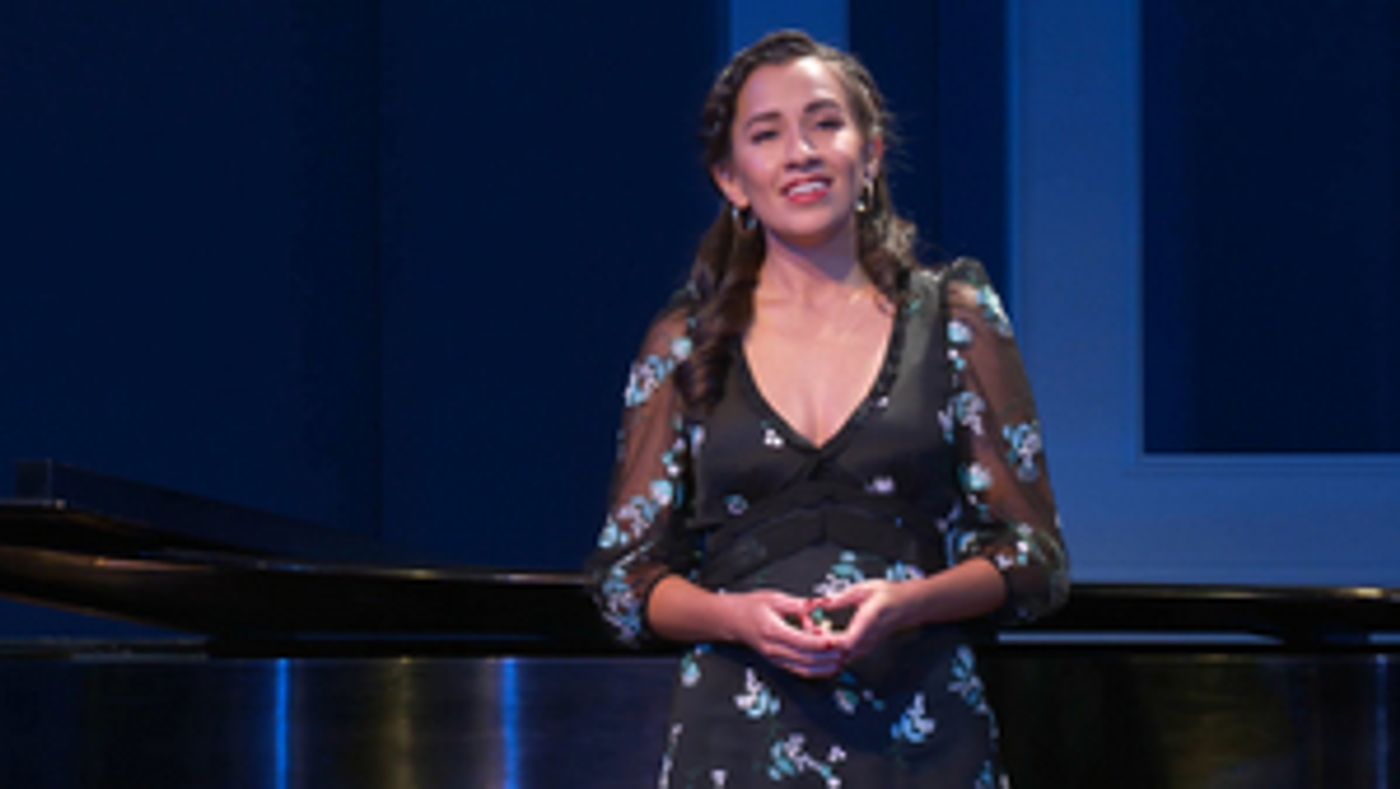Review: Los Angeles Opera and Opera San Jose Celebrate Latina Composers
The concert is now streaming On Demand.
 On Saturday, May 15, 2021, Los Angeles Opera and Opera San Jose presented a recital honoring the invaluable contributions Latina composers have made to the world of classical music. Curated by LAO Artist in Residence Russell Thomas, and featuring OSJ Resident Company members, this recital includes songs by Modesta Bor (1926-1998), María Luisa Escobar (1903-1985), Chabuca Granda (1920-1983), María Grever (1885-1951), Ernestina Lecuona (1882-1951), Ángela Peralta (1845-1883), and Consuelo Velázquez (1916-2005). Also represented are contemporary composers, Gabriela Lena Frank, Tania León, Mariela Rodríguez, and Irma Urteaga.
On Saturday, May 15, 2021, Los Angeles Opera and Opera San Jose presented a recital honoring the invaluable contributions Latina composers have made to the world of classical music. Curated by LAO Artist in Residence Russell Thomas, and featuring OSJ Resident Company members, this recital includes songs by Modesta Bor (1926-1998), María Luisa Escobar (1903-1985), Chabuca Granda (1920-1983), María Grever (1885-1951), Ernestina Lecuona (1882-1951), Ángela Peralta (1845-1883), and Consuelo Velázquez (1916-2005). Also represented are contemporary composers, Gabriela Lena Frank, Tania León, Mariela Rodríguez, and Irma Urteaga.
Accompanied by guitarist José Chuy Hernandez, baritone Efraín Solís opened the concert singing "Júrame" ("Promise Me") with smooth legato tones. "Júrame" was the first international hit by Mexican composer, Maria Grever, who had studied in France with Debussy. Tenor Carlos Enrique Santelli and guitarist Hernandez continued with poignant rendition of a sadder song by Grever, "Despedida" ("Farewell") in which the singer hopes not to be forgotten.
Wearing a filmy black gown adorned with pale blue flowers, soprano Vanessa Becerra offered lyrical and delightfully rhythmic renditions of Chabuca Granda's "Fina estampa" ("Fine Stamp") and "La flor de la canela"("The Cinnamon Flower") accompanied by piano, guitar, and drum. Although Becerra wore a long gown, her male colleagues wore suits rather than formal outfits. Becerra is a charmer and the songs fit her talent perfectly.
Accompanied by pianist César Cancino, baritone Luis Alejandro Orozco then appeared and dominated the stage from his first moment upon it. As they performed modern Cuban composer and New York Philharmonic board member Tania León's declarative "Mi amor es" ("My Love Is"), Orozco's dramatic tones that made me think I would like to see him as the "Toreador" in Carmen some day. For his second song, Orozco declaimed Ernestina Lecuona's "Solo a ti te quiero" ("I only love you") with bronze-tinged resonance while Cancino's playing offered an interesting underpinning.
Carlos Enrique Santelli's interpretation of Ángela Peralta's "Io t'amero" ("I Love You"), accompanied by pianist César Cancino, was the perfect opposite in beauty of tone. His voice seems totally effortless and smooth from top to bottom as he continued with Modesta Bor's Canción de cuna para dormir a Albertico (Lullaby for Albertico) and Guitarra (Guitar)
Vanessa Becerra returned with music by Argentine composer and teacher, Irma Urteaga, whose music, especially in the piano part, reflects the culture of Buenos Aires. Becerra's lyric soprano has the clarity of tone to express Urteaga's Canticos para soñar y otras obras de camara (Songs for Dreaming and Other Chamber Works) that include the "Canción de cuna para mi corazón solitario" "Lullaby for my lonely heart," the "Canto de nodriza" (" Nurse's song" ), the "Vocalise," and the "Capullito" ("Little Cap"). I found the " Nurse's song" particularly intriguing when she sang of nourishing the roses in the baby's cheeks.
Gabrielaa??Lenaa??Frank's Songs of Cifar and the Sweet Sea are based on poetry by the Nicaraguan poet Pablo Antonio Cuadra who spent part of his life sailing the waters of Lake Nicaragua. Efraín Solís, baritone, and Bryndon Hassman, pianist, told fascinating musical stories as they performed "Me distea??¡oh Dios! una hija" ("Oh God, you gave me a daughter"), "Eufemia," and "En la vela del angelito" ("In the Little Angel's Candle") from Frank's cycle.
Becerra and Cancino returned for their final turn with fine interpretations of Mariela Rodríguez's descriptive Dos canciones mediterráneas (Two Mediterranean Songs). They told of moonlight on rippling waves and a nothingness that tightens the soul: "La nada que se aprieta sobre alma" ("The Nothing that Presses on the Soul"), and "El tiempo es fiero" ("Time is fierce").
Cancino and Orozco offered a medley of songs about love and the chances of achieving happiness by twentieth century composer Consuelo Velázquez. Their renditions of the sweet "Enamorado" ("In love"), the realistic "Amar y vivir" ("Love and live"), and the self-sacrificial "Que seas feliz" ("May you be happy") were enchanting.
Santelli and Cancino presented their finale: María Luisa Escobar's mouthwatering "Naranjas de Valencia" ("Oranges from Valencia"). The oranges may have tasted like honey while Santelli's tenor voice was pure ear-candy.
This recital is now streaming on demand at the following
LINK: https://www.operasj.org/latina-composers-recital/
Photos courtesy of Opera San Jose
Reader Reviews

Videos

